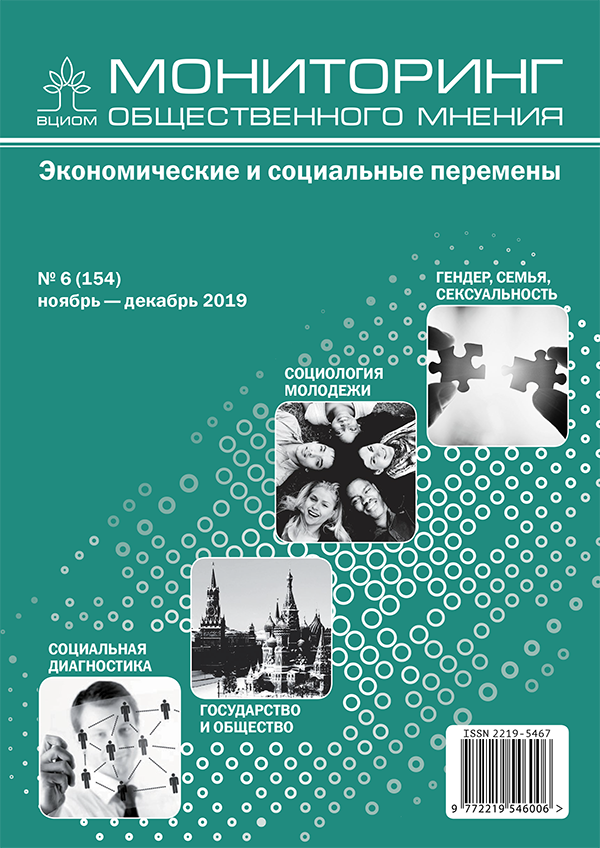Благополучие и неблагополучие семьи и ребенка в нарративах специалистов по профилактике безнадзорности и правонарушений несовершеннолетних Санкт-Петербурга
DOI:
https://doi.org/10.14515/monitoring.2019.6.14Ключевые слова:
благополучие детей, неблагополучие детей, жизненные траектории, экспертное интервьюАннотация
В статье представлены результаты подготовительного этапа лонгитюдного исследования, посвященного жизненным траекториям семей и детей, находящихся в контакте с системой профилактики безнадзорности и правонарушений несовершеннолетних г. Санкт-Петербурга. Ввиду недостаточной определенности критериев, регулирующих работу с семьей, в нормативно-правовой документации значительную роль в дальнейшей траектории семьи и несовершеннолетнего начинает играть субъективная оценка ситуации специалистом. Для понимания оснований этой оценки мы провели серию из 11 полуструктурированных экспертных интервью со специалистами Санкт-Петербурга, представляющими разные органы, входящие в систему профилактики безнадзорности и правонарушений несовершеннолетних. При оценке благополучия специалисты использовали как объективные, так и субъективные критерии, которые соответствуют современным научным и практическим тенденциям в понимании этого явления. В ходе интервью подтвердилась гипотеза о высокой субъективности принятия решений и значительной роли специалиста в развитии дальнейшей жизненной траектории семьи. Специалисты продемонстрировали понимание благополучия, созвучное современным представлениям о данном феномене. Они убеждены, что благополучие и неблагополучие семьи определяет благополучие или неблагополучие ребенка, проживающего в ней. Медиаторами благополучия и неблагополучия являются ресурсы (внутренние, внешние) семьи и ребенка. В представлении специалистов семья, соответствующая существующим в обществе нормам, — залог благополучия ребенка. Сообразно этим убеждениям, неблагополучная семья, а именно семья, отклоняющаяся от норм, формирует неблагополучие ребенка. Необходимо дальнейшее исследование критериев и стадий (не)благополучия и выделение индикаторов, позволяющих специалисту ориентироваться в принятии решения о возможностях дальнейшей работы с семьей или ребенком.
Благодарность. Исследование выполнено в рамках проекта «Социальные траектории детства в современной России», поддержанного грантом Российского научного фонда № 16-18-10372.






